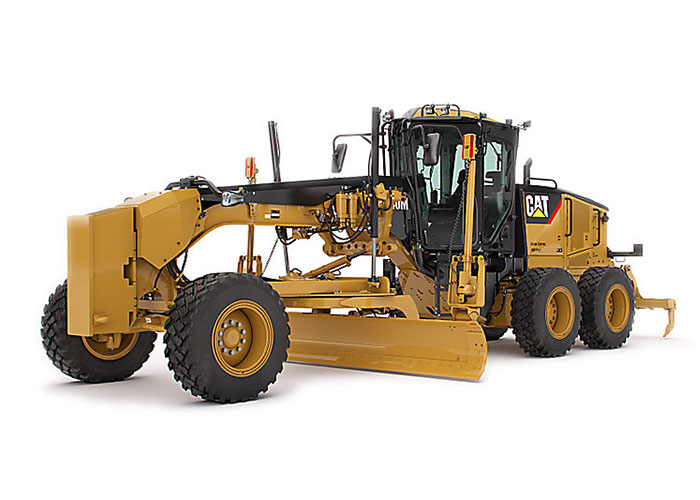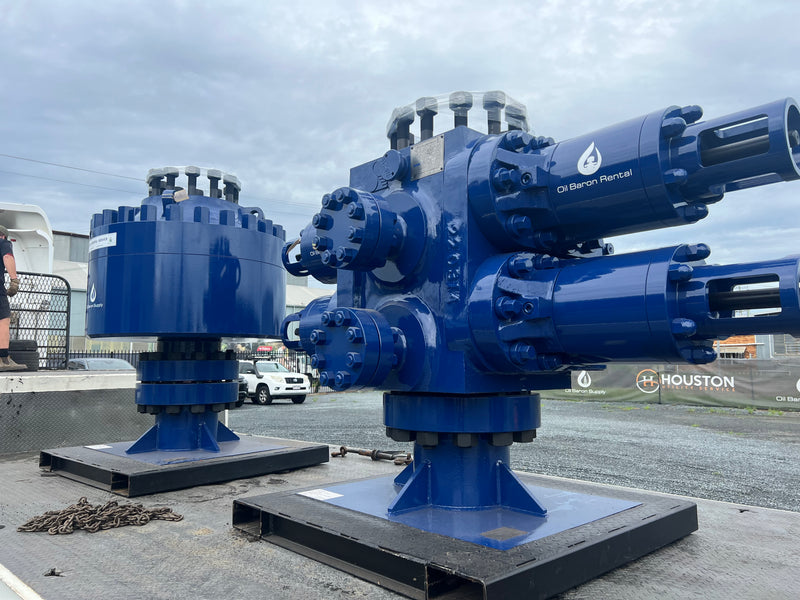A Comprehensive Overview to the Various Types of Oil Field Equipment and Pipeline Equipment Available
The oil and gas market counts heavily on specialized devices for reliable removal and transportation. Different kinds of equipment, from piercing rigs to tank, play important functions in this intricate procedure. Each tool serves unique features that add to total functional success. Understanding these elements is necessary for any person associated with the industry. As the industry develops, so as well do the innovations that sustain it. What innovations are on the perspective?

Drilling Rigs: The Backbone of Oil Expedition
Drilling rigs act as the important equipment in the domain of oil expedition, allowing companies to accessibility hydrocarbon books hidden deep underneath the Earth's surface area. These rigs are available in various types, including land rigs, offshore rigs, and mobile systems, each designed to run in particular settings. Geared up with innovative innovation, piercing rigs can penetrate geological developments with precision, making sure efficient source removal. The structural honesty and operational abilities of these rigs are critical, as they need to withstand extreme problems and significant pressures. The selection of an exploration rig impacts the general task price and timeline, making it an important consideration for oil business looking for to maximize their expedition efforts and make the most of efficiency in their procedures.
Pumps: Crucial for Fluid Movement
In the oil extraction process, the function of pumps is considerable, promoting the activity of liquids throughout numerous phases of manufacturing. Pumps are essential for transferring petroleum, water, and other fluids from below ground storage tanks to the surface area and then with pipelines to refineries. They are available in different types, including centrifugal, positive displacement, and submersible pumps, each offering details objectives based upon the liquid attributes and functional demands. Centrifugal pumps are typically utilized for their efficiency in high-flow applications, while positive variation pumps master managing thick fluids. The choice of pump influences total performance, operational safety, and maintenance prices. Appropriate choice and maintenance of pumps are essential for maximizing manufacturing and reducing downtime in oil field procedures.
Shutoffs: Controlling Circulation and Pressure

Shutoffs play a crucial duty in handling the circulation and pressure of liquids within oil fields and pipelines. Numerous kinds of shutoffs offer distinct applications, each made to satisfy details functions essential for efficient procedure - Superior Oilfield pipeline equipment rentals. Recognizing the qualities and uses these valves is necessary for optimizing system efficiency and safety and security
Types of Valves
Crucial components in oil field procedures, shutoffs play a crucial function in managing the circulation and stress of fluids within pipelines and devices. Numerous sorts of shutoffs are utilized to meet the diverse demands of oil and gas production. Typical kinds consist of entrance valves, which give a straight-line flow and very little pressure decrease; globe valves, understood for their throttling abilities; and sphere shutoffs, acknowledged for their fast on/off control. In addition, check shutoffs stop heartburn, while butterfly shutoffs use a light-weight option for managing circulation. Each shutoff type is developed with particular materials and configurations to endure the severe conditions frequently discovered in oil fields, guaranteeing reliability and efficiency in procedures. Recognizing these kinds is important for efficient system administration.
Valve Applications and Functions
While numerous kinds of valves offer unique purposes, their key applications focus on managing flow and pressure within oil and gas systems. Shutoffs such as entrance, globe, and round shutoffs regulate liquid activity, making sure peak performance and safety. Gateway valves are commonly made use of for on/off control, supplying minimal circulation resistance. World valves, on the various other hand, deal accurate circulation guideline, making them appropriate for strangling applications. Ball shutoffs are favored for their fast operation and limited securing capabilities. Additionally, pressure safety valve are crucial for preventing system overpressure, securing equipment honesty. In general, the appropriate choice and application of valves improve functional effectiveness, ensuring the trustworthy transport of oil and gas via pipelines and handling centers.
Compressors: Enhancing Gas Transport
Compressors play a crucial function in the reliable transport of all-natural gas, guaranteeing that it relocates efficiently with pipes over fars away. These tools enhance the stress of gas, allowing it to get rid of friction and altitude changes within the pipeline system. Furthermore, compressors facilitate the balancing of supply and need, accommodating changes in intake and production prices. Numerous types of compressors are utilized in the sector, consisting of centrifugal, reciprocating, and rotary screw compressors, each offering unique benefits based on the functional needs. Regular maintenance of these compressors is important to make best use of effectiveness and lessen downtime, inevitably adding to a reliable gas transportation network. Their vital feature emphasizes the importance of compressors in the general oil and gas facilities.
Storage Tanks: Safe and Effective Liquid Management
Efficient transportation of all-natural gas right here depends on various support group, one of which is the appropriate administration of tank. These containers play an essential duty in securely consisting of fluids, guaranteeing that functional effectiveness is kept while decreasing ecological threats. Built from long lasting materials, they are developed to endure high pressures and corrosive components. Effectively sized and purposefully situated, tank promote the smooth circulation of gas and other liquids, protecting against traffic jams in supply chains. Routine maintenance and monitoring are important to spot leakages or architectural problems, promoting safety and security and compliance with regulatory criteria. Eventually, the effective monitoring of storage space tanks is critical for the general integrity and integrity of the oil and gas market's fluid handling systems.
Pipeline Equipments: Facilities for Transport
Pipeline systems function as the backbone of the oil and gas market, helping with the efficient transport of hydrocarbons over vast ranges. These systems include numerous components, consisting of pipes, shutoffs, pumps, and compressors, all carefully made to ensure smooth flow. The products used in pipeline building and construction, frequently steel or high-density polyethylene, are picked for sturdiness and resistance to corrosion. Pipeline networks can cover throughout land and water, linking manufacturing sites to refineries and circulation centers. Furthermore, progressed technology allows real-time surveillance of flow rates and stress degrees, enhancing functional performance. The tactical placement of these pipes minimizes environmental effect while optimizing source accessibility, thus playing an essential role in meeting power needs globally.
Safety Equipment: Guaranteeing Employee and Environmental Defense
The procedure of pipeline systems, while important for energy transportation, likewise provides substantial safety and security challenges for workers and the environment. Safety equipment plays a considerable function in alleviating these threats. Individual safety tools (PPE) such as headgears, handwear covers, and non-slip shoes safeguards employees from physical threats. In addition, gas this link discovery systems check for leakages, making certain that harmful substances do not pose a threat to personnel or the bordering environment. Emergency situation closure systems are critical for promptly stopping operations during a crisis, preventing possible calamities. you can try these out Spill control materials, including absorbents and obstacles, are basic for decreasing ecological effect. In general, purchasing all-encompassing safety and security devices is vital for preserving operational honesty and securing both workers and the environment in the oil and gas field.

Frequently Asked Concerns
Just how Do I Pick the Right Oil Field Equipment for My Task?
Choosing the ideal oil field equipment includes reviewing task specifications, budget plan restraints, and functional requirements. Think about variables such as equipment reliability, compatibility with existing systems, and the provider's track record to assure peak efficiency and safety.
What Are the Maintenance Requirements for Oil Field Equipment?
Maintenance demands for oil field devices include routine assessments, lubrication, and prompt fixings. Operators should also comply with manufacturer guidelines, monitor performance metrics, and guarantee compliance with safety regulations to enhance longevity and efficiency.

Exactly How Can I Guarantee Conformity With Environmental Regulations?
To assure compliance with ecological policies, firms should perform routine audits, apply finest techniques, invest in training, keep proper paperwork, and stay updated on regulation (Superior Oilfield pipeline equipment rentals). Cooperation with environmental companies can additionally enhance adherence to policies
What Is the Ordinary Life-span of Pipeline Equipment?
The average life expectancy of pipeline tools generally varies from 20 to half a century, depending on elements such as worldly top quality, environmental conditions, and maintenance techniques. Routine examinations can significantly influence durability and functional performance.
How Do I Safely Carry Oil Field Equipment to Remote Locations?
Moving oil field equipment to remote places needs cautious preparation, consisting of course analysis, safeguarding authorizations, using appropriate cars, and guaranteeing security procedures are complied with. Appropriate training and interaction among teams are necessary for effective transport.